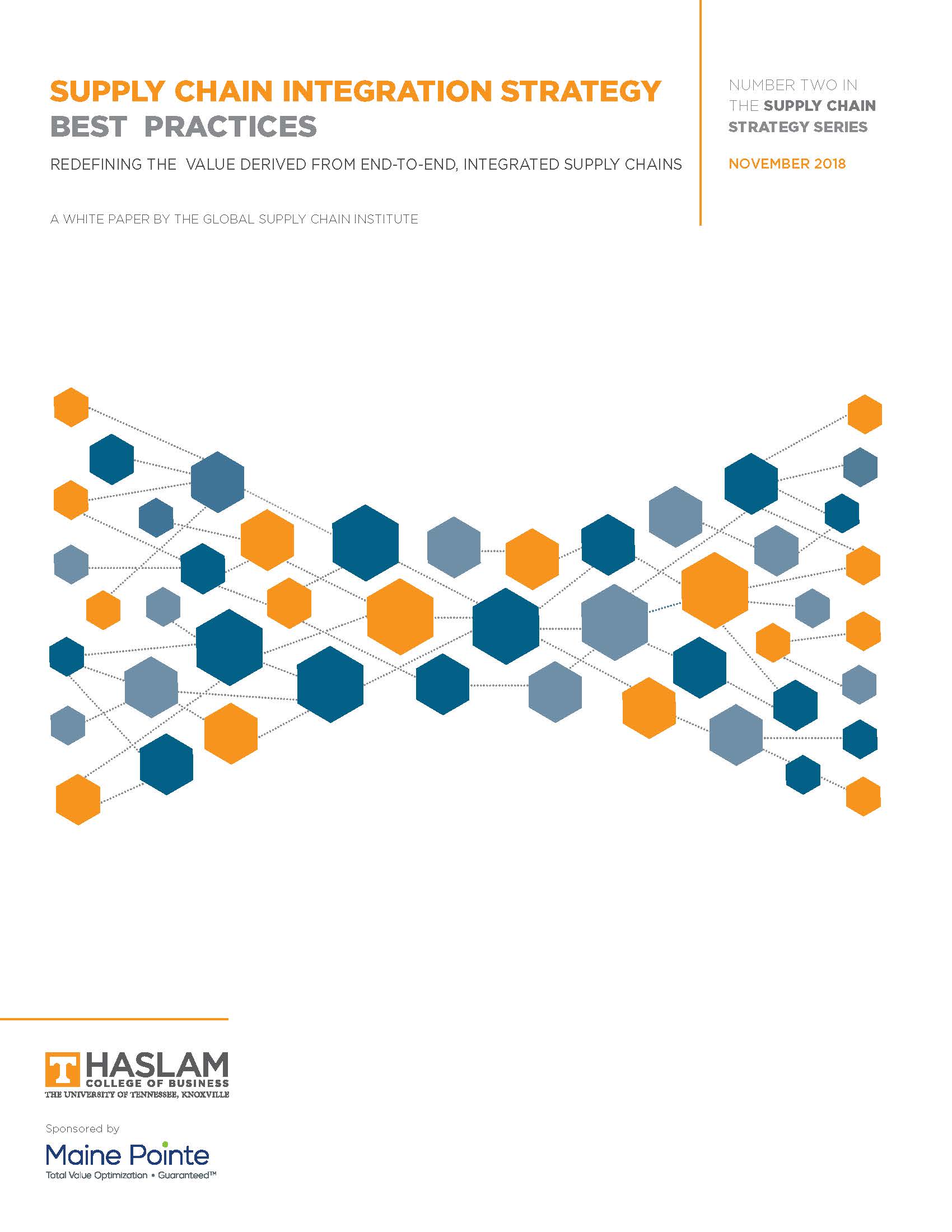
The Global Supply Chain Institute (GSCI) serves as the global research hub of the University of Tennessee, Knoxville’s Haslam College of Business, connecting industry-leading companies with Haslam’s top-ranked faculty and talent pool of students and alumni. In the past six-months, faculty for GSCI’s Executive MBA for Global Supply Chain program have worked with companies including Ryder and Mondelēz International on white papers that set standards and best practices for the future of the supply chain. In April, Haslam’s J. Paul Dittman, PhD co-authored, with Dan Pellathy, PhD in Supply Chain Management from the University of Tenessee, “Driving Shareholder Value With Your Supply Chain: Insights to Help Unlock Value Across Your Supply Chain for Competitive Advantage.” As Dittman explains, whether a firm is private or public, shareholder value is a measure of long-run financial health and long-range prospects. Traditionally, the supply chain has been understood as a function to mitigate risk. In his research, Dittman acknowledges the importance of mitigating risk, but he explores the profit supply chain excellence can drive. Though there is no one single definition of supply chain excellence, Dittman suggests whatever definition a company chooses, the most important way to achieve supply chain excellence is to measure and track your performance over time. Supply chains are no longer confined to logistics, and by taking an outmoded view of the supply chain, companies stand to miss-out on massive opportunity. Dittman lays out that shareholder value is linked to supply chain excellence through three end-to-end supply chain capabilities:
- supporting higher revenue by providing flawless delivery and enabling growth;
- reducing cost by identifying more efficient operations; and
- reducing capital requirements by streamlining physical networks.

To drive shareholder value with supply chain excellence, Dittman offers ten practical areas to focus on that cover everything from focusing on the right metrics, to building the right team, to thinking creatively. Ultimately, he makes the case that supply chain excellence is the most important factor in driving shareholder value. Supply chain managers need to have a seat at the table, and they must be able to clearly show how the supply chain grows revenue.Also in April, the GSCI released a paper titled “End-to-End Supply Chain Planning Framework and Key Concepts: Why Planning Is the “Brains” of the Supply Chain,” authored by Michael Burnette and Chad Autry, PhD. As they explain, supply chain planning has become increasingly important as supply chain complexity increases, new multi-functional business processes are created and consumer demands shift. Across today’s deeply integrated end-to-end supply chains, even seemingly small waste creates meaningful revenue loss, and sophisticated planners are needed to reduce waste. Burnette and Autry’s work explores the urgency business executives face to improve planning systems and processes. To do this, they draw on insights from Haslam’s network of business partners and integrate that data with academic research to create two new supply chain planning models.

Working with Dan Pellathy and Scott Meline, Michael Burnette also recently lent his expertise to a paper titled “Supply Chain Integration Strategies Best Practices: Redefining the Value Derived from Integrated End-to-End Supply Chains,” which looks at how top companies are integrating end-to-end supply chains. After interviewing 16 leading companies across eight industries, Burnette et al. have redefined end-to-end integration of the supply chain using a more robust and data-based approach that generates competitive advantage. This, Burnette et al. argue, is done by relentlessly driving productivity, efficiency, and innovation. They make clear that with today’s complex, global supply chains, integration requires strategy, which requires leadership. Leaders are needed to implement best practices and drive top and bottom line improvement.
Haslam’s faculty are at the forefront of redefining the future of the supply chain. Their vision and expertise draw corporate partners to GSCI, including Fortune 100 companies such as Amazon, Dell, FedEx Services, Google, Pepsico, Lockheed Martin Aeronautics Company, Walmart and more. Haslam’s Executive MBA allows supply chain executives from around the world to come work with Wendy Tate, Randy V. Bradley, Shay Scott, Ted Stank and other distinguished Haslam faculty. Haslam’s EMBA program helps executives advance their careers by bringing the kind of value to their companies discussed in GSCI’s full complement of white papers.
To learn more, visit UT Haslam’s Executive MBA for Global Supply Chain program.
